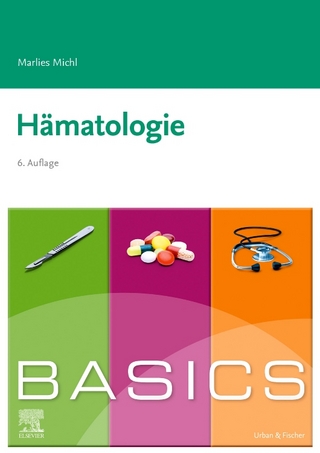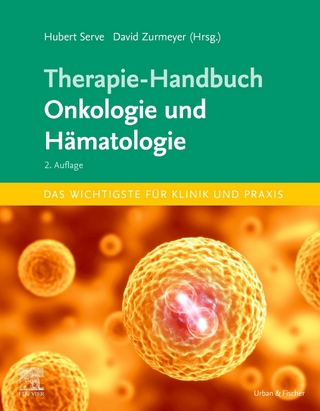
Hematology Techniques and Concepts for Veterinary Technicians
Seiten
2016
Delve Publishing (Verlag)
978-1-68095-867-6 (ISBN)
Delve Publishing (Verlag)
978-1-68095-867-6 (ISBN)
- Titel nicht im Sortiment
- Artikel merken
The field of hematology involves the study of normal and diseased conditions related to the blood. One of the primary techniques used to study the blood is histology, which involves studying the microscopic anatomy of the cells in the blood to determine their relative abundance, phenotype and function. Histology is a major focus of this book.
Hematology is the study of blood, its chemistry, and components. The most common blood test is a complete blood count (CBC). This test determines the number and type of white and red blood cells circulating in the bloodstream. It is most often used to check for signs of inflammation or infection (revealed by changes in the number and appearance of different kinds of white blood cells). Determining the number, size, and hemoglobin content of red blood cells helps identify disorders such as anemia. Platelets are also examined during a CBC; changes in platelets can help identify blood clotting disorders. If a pet has a specific problem at the time of the examination, the veterinarian may perform additional tests that are not generally part of a routine physical examination. For example, examination of a dog with suspected vision problems might include tests that assess overall vision, examination with an ophthalmoscope and various stains, and determination of the pressure within the eye (intraocular pressure). Similarly, examination of a lame horse might include a hands-on examination of the affected leg, blood and biochemical tests, muscle biopsy, and various types of imaging techniques. Hematology techniques are important for the general and emergency care of animals and should be a commonly utilized tool for veterinary technicians.
The field of hematology involves the study of normal and diseased conditions related to the blood. One of the primary techniques used to study the blood is histology, which involves studying the microscopic anatomy of the cells in the blood to determine their relative abundance, phenotype and function. Histology is a major focus of this book, although other techniques are discussed. Along with general overviews of histology and histopathology, numerous examples are provided regarding specific diseases and their diagnosis using hematology. Some of the diseases, conditions and treatments discussed in this book include Monensin Toxicosis infection, Kidney ischaemia reperfusion injury, hormone replacement therapies, endosulfan, tadalafil and ochratoxin-A therapies, hepatitis, burns and cancer which is discussed in detail. Along with veterinary technicians, animal owners and other veterinary professionals may gain insights into hematology through reviewing this material.
Hematology is the study of blood, its chemistry, and components. The most common blood test is a complete blood count (CBC). This test determines the number and type of white and red blood cells circulating in the bloodstream. It is most often used to check for signs of inflammation or infection (revealed by changes in the number and appearance of different kinds of white blood cells). Determining the number, size, and hemoglobin content of red blood cells helps identify disorders such as anemia. Platelets are also examined during a CBC; changes in platelets can help identify blood clotting disorders. If a pet has a specific problem at the time of the examination, the veterinarian may perform additional tests that are not generally part of a routine physical examination. For example, examination of a dog with suspected vision problems might include tests that assess overall vision, examination with an ophthalmoscope and various stains, and determination of the pressure within the eye (intraocular pressure). Similarly, examination of a lame horse might include a hands-on examination of the affected leg, blood and biochemical tests, muscle biopsy, and various types of imaging techniques. Hematology techniques are important for the general and emergency care of animals and should be a commonly utilized tool for veterinary technicians.
The field of hematology involves the study of normal and diseased conditions related to the blood. One of the primary techniques used to study the blood is histology, which involves studying the microscopic anatomy of the cells in the blood to determine their relative abundance, phenotype and function. Histology is a major focus of this book, although other techniques are discussed. Along with general overviews of histology and histopathology, numerous examples are provided regarding specific diseases and their diagnosis using hematology. Some of the diseases, conditions and treatments discussed in this book include Monensin Toxicosis infection, Kidney ischaemia reperfusion injury, hormone replacement therapies, endosulfan, tadalafil and ochratoxin-A therapies, hepatitis, burns and cancer which is discussed in detail. Along with veterinary technicians, animal owners and other veterinary professionals may gain insights into hematology through reviewing this material.
Stephen Rego obtained his PhD from the University of North Carolina at Charlotte in 2013 where his graduate research focused on cancer immunology and the tumor microenvironment. He received postdoctoral training in regenerative and translational medicine, specifically gastrointestinal tissue engineering, at the Wake Forest Institute of Regenerative Medicine. Currently, Stephen is an instructor for anatomy and physiology and biology at Forsyth Technical Community College.
| Erscheinungsdatum | 16.03.2018 |
|---|---|
| Sprache | englisch |
| Maße | 152 x 229 mm |
| Themenwelt | Medizinische Fachgebiete ► Innere Medizin ► Hämatologie |
| Veterinärmedizin ► Klinische Fächer ► Hämatologie | |
| ISBN-10 | 1-68095-867-4 / 1680958674 |
| ISBN-13 | 978-1-68095-867-6 / 9781680958676 |
| Zustand | Neuware |
| Informationen gemäß Produktsicherheitsverordnung (GPSR) | |
| Haben Sie eine Frage zum Produkt? |
Mehr entdecken
aus dem Bereich
aus dem Bereich
Buch | Softcover (2023)
Deutscher Ärzteverlag
29,99 €
Buch | Softcover (2024)
Urban & Fischer in Elsevier (Verlag)
54,00 €


